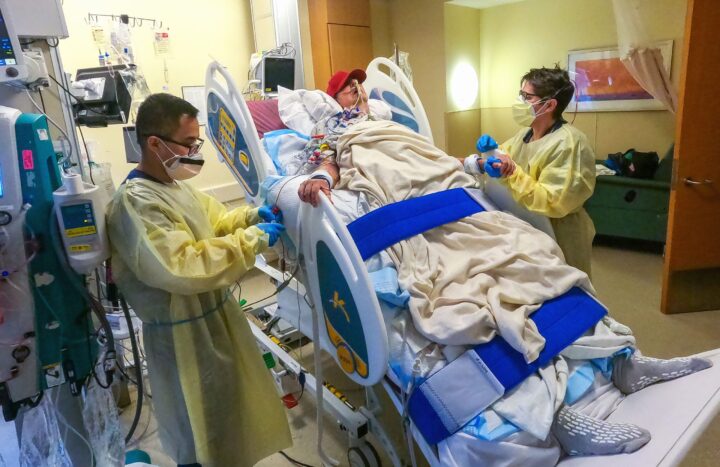Photo: University of Maryland School of Medicine
David Bennett, a 57-year-old man with terminal heart disease who had undergone a first-of-its-kind pig heart transplant, is dead.
According to a statement by the University of Maryland School of Medicine (UMSOM), Bennett died on Tuesday.
In January, he had undergone a successful transplant of a genetically-modified pig’s heart.
The organ transplant was reportedly the only available option for the patient, who was said to be suffering from life-threatening arrhythmia — a condition in which the heart beats with an irregular pattern.
Advertisement
According to the statement by UMSOM, his condition had deteriorated in recent days, and “after it became clear that he would not recover, he was given compassionate palliative care”.
He was said to have communicated with his family members in the hours before he died.
Speaking on the incident, Bartley Griffith, director of the cardiac transplant programme at the medical centre, described Bennett’s death as “devastating”.
Advertisement
“We are devastated by the loss of Mr. Bennett. He proved to be a brave and noble patient who fought all the way to the end. We extend our sincerest condolences to his family,” he said.
“As with any first-in-the-world transplant surgery, this one led to valuable insights that will hopefully inform transplant surgeons to improve outcomes and potentially provide lifesaving benefits to future patients.”
On his part, Muhammad Mohiuddin, professor of surgery at UMSOM who established the cardiac xenotransplantation programme with Griffith, commended Bennett’s contribution to science.
“We are grateful to Mr. Bennett for his unique and historic role in helping to contribute to a vast array of knowledge to the field of xenotransplantation,” he said.
Advertisement
“We have gained invaluable insights learning that the genetically modified pig heart can function well within the human body while the immune system is adequately suppressed. We remain optimistic and plan on continuing our work in future clinical trials.”
Add a comment






